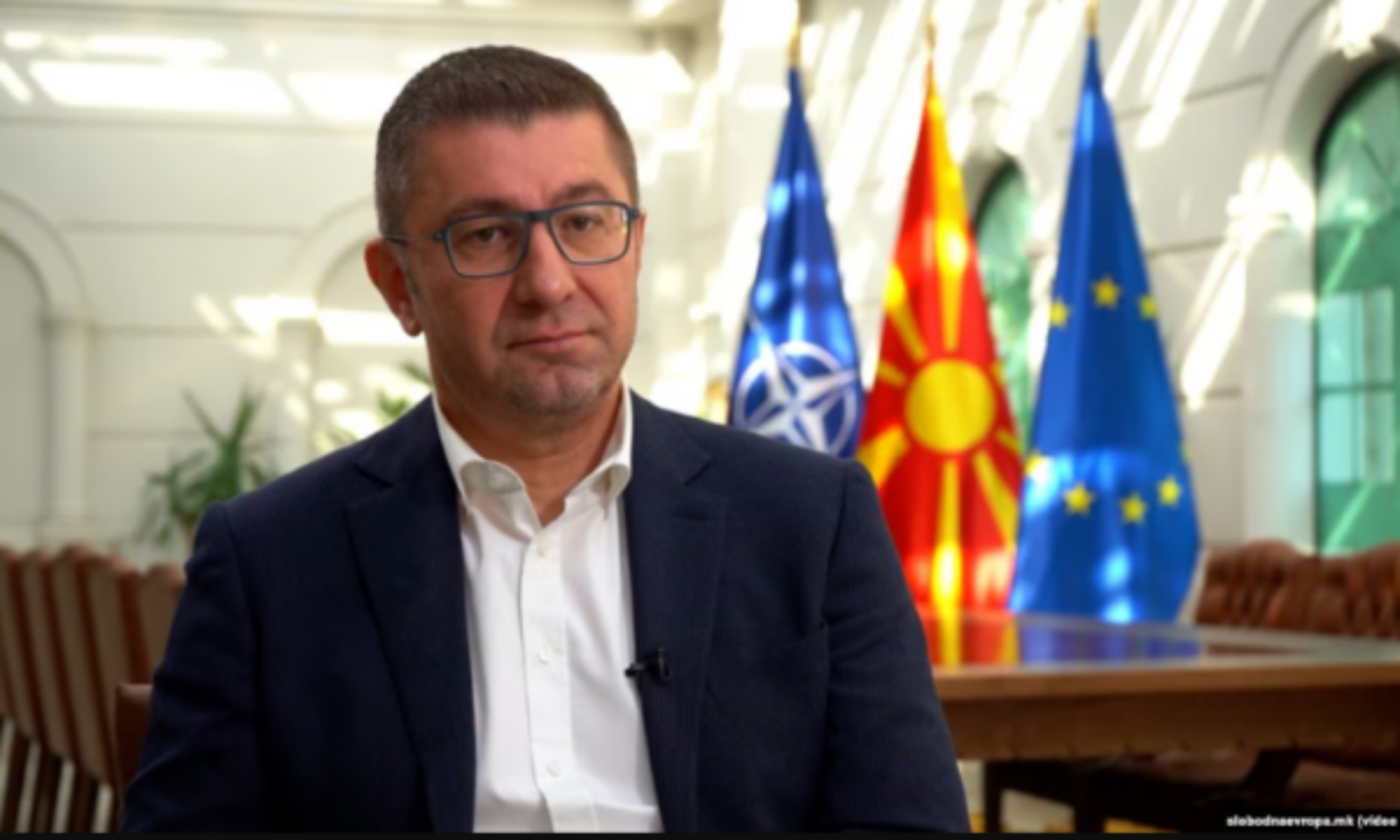The Prime Minister of North Macedonia, Hristijan Mickoski, is awaiting a response from Brussels regarding the continuation of negotiations for EU membership if constitutional changes are approved, as well as their potential implementation.
In an interview with Radio Free Europe, Mickoski emphasizes that there is no Russian influence in the country, but notes that euroskepticism is fueled by some Bulgarian politicians. He also does not expect any changes in U.S. policy toward the Balkans, regardless of the upcoming elections, and does not favor either presidential candidate, despite meetings with Richard Grenell.
Radio Free Europe: European Commission President Ursula von der Leyen has made it clear that the only step forward in negotiations is the constitutional changes. Have you received a “no” regarding the delayed implementation of these changes?
Hristijan Mickoski: I think we need to give the process some time. Let’s complete this step first and then discuss the next steps.
Radio Free Europe: Are you linking this to the elections in Bulgaria?
Hristijan Mickoski: That’s an internal matter for Bulgaria. I believe that if there’s a will, a solution can be found. Dictates and ultimatums are not solutions; we need dialogue to achieve a mutually beneficial outcome.
Radio Free Europe: The further North Macedonia is from the EU, the more space there is for other influences. What is the Russian influence in this context?
Hristijan Mickoski: I wouldn’t say we have Russian influence here. Historically, we have never been a priority for Russian diplomacy. We are part of NATO and aligned with EU foreign policy, which is logical.
Radio Free Europe: Which politicians are fueling euroskepticism?
Hristijan Mickoski: I’m referring to some Bulgarian politicians who are pushing us backward. We should be discussing the future, not ultimatums.
Radio Free Europe: Does this create space for other influences, such as those from China?
Hristijan Mickoski: China is more present in other EU countries than in ours. We are committed to the European Union as our strategic goal.
Radio Free Europe: How will you retain young people in a country with the lowest wages?
Hristijan Mickoski: We’ve been in government for four months. Initial data shows an increase in wages, and we will focus on investments rather than consumption.
Radio Free Europe: There have been conflicting statements about the railway to Bulgaria. What will happen with it?
Hristijan Mickoski: Railways are a strategic interest for us. Dialogue with Bulgaria is ongoing, and I hope for positive results.
Radio Free Europe: The opposition accuses your government of politicizing the National Security Agency.
Hristijan Mickoski: The current director is a professional who has worked in the past, and we want to collaborate with trustworthy people to secure the state’s interests.
Radio Free Europe: Do you have proposals for reforming the Judicial Council?
Hristijan Mickoski: Yes, I have started consulting with international experts and hope to have a solution soon. Citizens are clearly dissatisfied with the judicial system, and it is necessary to address this issue seriously.







